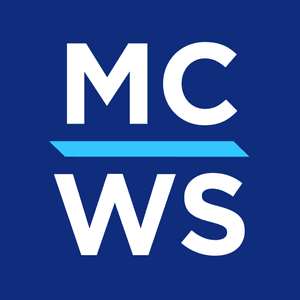Note: This information is from 2020 but much has changed since then. Please be sure to discuss your unique financial situation with your McKinley Carter Advisor or another trusted professional.

It's important to plan as early as possible for the emotional and financial twists and turns that Alzheimer’s presents for the patient and loved ones.
I’m not a doctor. I’m not a lawyer. But I do have a very personal experience with the ravages of Alzheimer’s disease – how a confirmed diagnosis can take away the very essence of someone you love, and leave behind fear, stress, and frustration. As so many have come to know, Alzheimer’s is not so much a death sentence but rather a life sentence. A life sentence of deleting sunshine-filled memories and filling the void with dark clouds of memory loss.
My sister, Barb, was diagnosed in 2012. The disease manifested itself in small ways in the beginning. “Where are my glasses?” (on her head). “This mixer doesn’t work!” (not plugged in). As if the cruelty of the disease were not enough, it caused her to lose her eyesight. Little by little, we became indistinguishable to her — literally and figuratively.
On a visit to her in the later stages, she asked me my name. “It’s me, Barb, Patty,” I said. She replied, “Oh, I have a sister named Patty. When she comes to see me, I’ll tell her I know two people named Patty.” Her descent spiraled until January 14, 2019, when she lost her battle but gained peace.
For my family, and I would imagine for many care givers of Alzheimer’s patients, the demands of overseeing the physical needs of our loved ones grossly overshadow the necessity of examining the financial questions and calculations that are just as vital to the patient’s comfort. Compounded by the overwhelming decisions that must be made, the family or extended caregivers often have little time or energy to devote to those considerations. Yet, considering the rising costs for extended care, and the uncertainty of each day, I encourage all to answer these hard questions early on.
In hopes that my story may help others, I offer these “words of wisdom” for navigating what I call the emotional and financial maze that is Alzheimer’s.
Gather and Organize Important Documents of Alzheimer's Patient
In the early stages of the disease, patients may be able to take part in planning and conveying their wishes and discussing strategies for physical and financial stability. Basic documents such as a will, a living trust, and advance directives can be initiated or updated to ensure that the person’s late-stage healthcare and financial decisions are clear and can be implemented.
However, if the person cannot make those decisions, it falls to those who know and love them to assess these needs. Obviously, the sooner the planning begins, the more complete the overall strategy becomes. Items to consider would include a living will and powers of attorney for both healthcare and financial decisions. In addition, current information about bank accounts, insurance policies, and IRAs should be collected and organized.
Document Patient's Digital Footprint
Sometimes we forget just how far our “digital footprint” extends – both personally and financially. Be sure to collect and safely house all account passwords and usernames of your loved one. Make that information accessible to designated family members as well. It may seem unimportant now, but it will alleviate much heartache and anguish later if you determine in advance how your loved one's social media accounts will be managed.
Facebook, for instance, has a “Memorialization setting” whereby the account holder can designate a “Legacy Contact” – or someone who will take over and manage their Facebook account in the event of their passing. It may seem woefully insignificant now compared to the many other decisions that must be made, but it’s part of the myriad of questions that must be answered: When my loved one is gone, do we maintain their social media page for people to pay their respects or do we take it down because it will be too hard to see? Like it or not, this is the age we are living in.
Consider In-Home Care for Alzheimer's Patient
In-home Care is another expense that, at first, families don’t consider. Despite a family’s determination to care for their loved one in their own home, the 24-hour/365-day commitment is daunting. First, it’s important to work out, in advance, with family members a schedule that allows enough breaks from the rigors of care giving. Be sure all involved get short breaks – time for a walk, lunch with friends, or time to get to the gym or grocery store.
Second, it’s beneficial to begin researching availability of health care providers in your local community who may offer in-home aides for even just a few hours a week. Review such costs with family members knowing that you may not need it now, but it could be more important down the road as the disease progresses. Monthly budgetary discussions are a good starting point for all.
It’s a shock to hear your loved one has Alzheimer’s because we all know what that means. It is a lonely journey that no GPS can navigate; there are no directions to follow. God willing, there will be a cure in the future. But for now -- for today – it’s important to plan, research and calculate as early as possible for the many twists and turns that Alzheimer’s presents for the patient and their loved ones. Don’t go it alone. In addition to the doctors, consult with professional advisors in various fields to guide you through all the necessary documentation.
